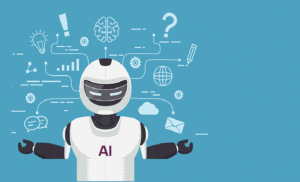Cybercrime is the greatest threat to every company in the world. -Ginni Rometty (IBM’s chairman, president, and CEO)
Well, it certainly is! If you have any second thoughts about it being such a big threat, here are some quick facts for you to know how adverse cybercrime is- A hacker attack takes place every 39 seconds.
As per the study at the University of Maryland, the near-constant rate a computer system experience a hacker attack is 39 seconds on an average.
” The amount of records stolen from breaches every day, since 2013 is 3,809,448. “
The reports generated by Cybersecurity Ventures showed that 158,727 records per hour and 2,645 records per minute is being stolen. That is a lot. With so much of data breaching taking place, nearly, $6 trillion is expected to be spent globally on cybersecurity by 2021.
But, while concentrating on devising measures to combat security threats and preventing data, let us shift our focus on the human and emotional aspect of the same for a while.
Do you know that almost 95% of data breaching that takes place is due to human error? The reason is quite obvious- the law of the weakest link. The hackers know that the weakest link won’t be found in the IT department, therefore, hackers will infiltrate through the channels of other human users.
Apart from the fact that humans are the weakest link in the company, the data that is breached also belongs to them. Therefore, the emotional consequence of security breaches is highly bared by humans. Some of the major emotional consequences are –
> Fear
With almost 95% of breached data coming from the three most trusted industries- government, retail, and technology the emotion of fear is extreme. The underlying cause is not that the security system of these industries is weak, rather the amount of sensitive data that can be achieved from these is humongous.
> Disappointment
Despite using the highest data security tools people are facing instances of cyber threats. This has given the feeling of disappointment a big rise.
This emotion has driven people to the extent that 69 percent of them have stopped believing that the threats seen by them can be blocked by their anti-virus software.
> Distrust
A major cyberattack instance that gave the feeling of distrust an extreme hype was- 3 billion Yahoo accounts being hacked in the year 2016.
Let us acknowledge the fact that, Yahoo is a big company and has trillions of users, the security system used by them must be strong enough. But, still, the breach took place and caused a wave of distrust among its users. Apart from this one instance, there are various other times when people have lost their trust in cybersecurity.
> Stress
You can’t be sitting all relaxed and happy, knowing that your identity and personal information is always at risk of being misused. Therefore, the emotion of stress is associated with each one of us, while using any system with no matter how strong of security base it has.
This stress is experienced not only because the private information is lost, but because there are huge financial losses that breaches bring along. On average, the cost of a malware attack on a company is nearly $2.4 million. Therefore, experiencing stress is quite an obvious emotion.
> Anxiety
With the number of instances that take place and the amount of information that is leaked, people start anticipating that they might be the next target. This leads to anxiety. Well with a rise of 600 percent IoT attacks in 2017, this anxiety is justifiable.
Yet another fact that justifies this emotion is that nearly 1 in 13 web requests actually leads to malware. This shows that everyone is equally at risk of their security being breached. It definitely brings a lot of worry in the mind of people.
> Hopelessness
According to a survey less than 44 percent of victims of cyber attacks, contact police or financial institutions, post a cyber attack. The underlying reasons that explain this immobility in reaching to the proper channels are related to their understanding that little can be done.
This leads to the feeling of hopelessness among those who are cyber-attacked.
> Frustrated
Despite using the best of the cybersecurity systems, people often experience cyber attacks or are always under the anticipation of having an encounter with the same.
This leads to frustration. This feeling is so prominent that only 3% of people are under the impression that they will never be a victim to any cybercrime ever.
Other (nearly 97%) of the population feels that they will eventually be impacted by some of the other online threat. This means that whenever someone accesses the internet, he is putting himself at risk, and is likely to believe that nothing can be done once that risk becomes reality.
> Annoyed
With over 24,000 malicious mobile apps blocked every day, a feeling of annoyance is no big of a surprise to be experienced by people. Downloading these apps, putting your general information on these apps, and the end result of being cheated is no good news for the users of such apps.
Therefore, experiencing annoyance because of cybercrime has increased manifold in people.
However, these negative emotions can be turned into positive by taking simple steps of preventing data and information. As the saying goes “the best defense is a good offense”, the same is applicable in the world of cybersecurity.
According to facts, 93% of breaches could have been avoided by taking a few simple steps like- leveraging modern cloud-based solutions, regular updating software, etc. Some of the positive emotions that these small steps have brought are:
> Trust
By demonstrating and advertising the cyber resilience companies have been able to deepen the trust of the clients. Research has clearly shown the positive benefits of it, nearly 89% of businesses have experienced better client loyalty and trust by optimizing cybersecurity.
> Safety and Serenity
When people feel safe, they experience peace and calmness. Same is applicable when people feel safe with the world of IoT. With a safe exposure to the cybersecurity, people feel at peace with themselves and also untroubled by the unnecessary threat that is experienced otherwise.
> Happiness
With the feeling of safety comes the emotion of happiness. When the data is all secured, an individual is likely to stay happier than being a worrier. One such initiative that has bought happiness among people is the launch of the first commercial cyber risk pool, in Singapore.
It offers the facility for providing cyber insurance to corporate buyers, as cyber attacks. Thus, providing both mental and financial relief to people.
Cybersecurity is not merely about preventing sensitive data and information anymore, with the psychology toll that it takes on people, it is now more about enhancing the psychological well-being of people.
Therefore, with the evolving world of cybersecurity, the human emotions attached with it are also evolving and they need to be taken care of.
— Marie Claire is associated as an assignment help









